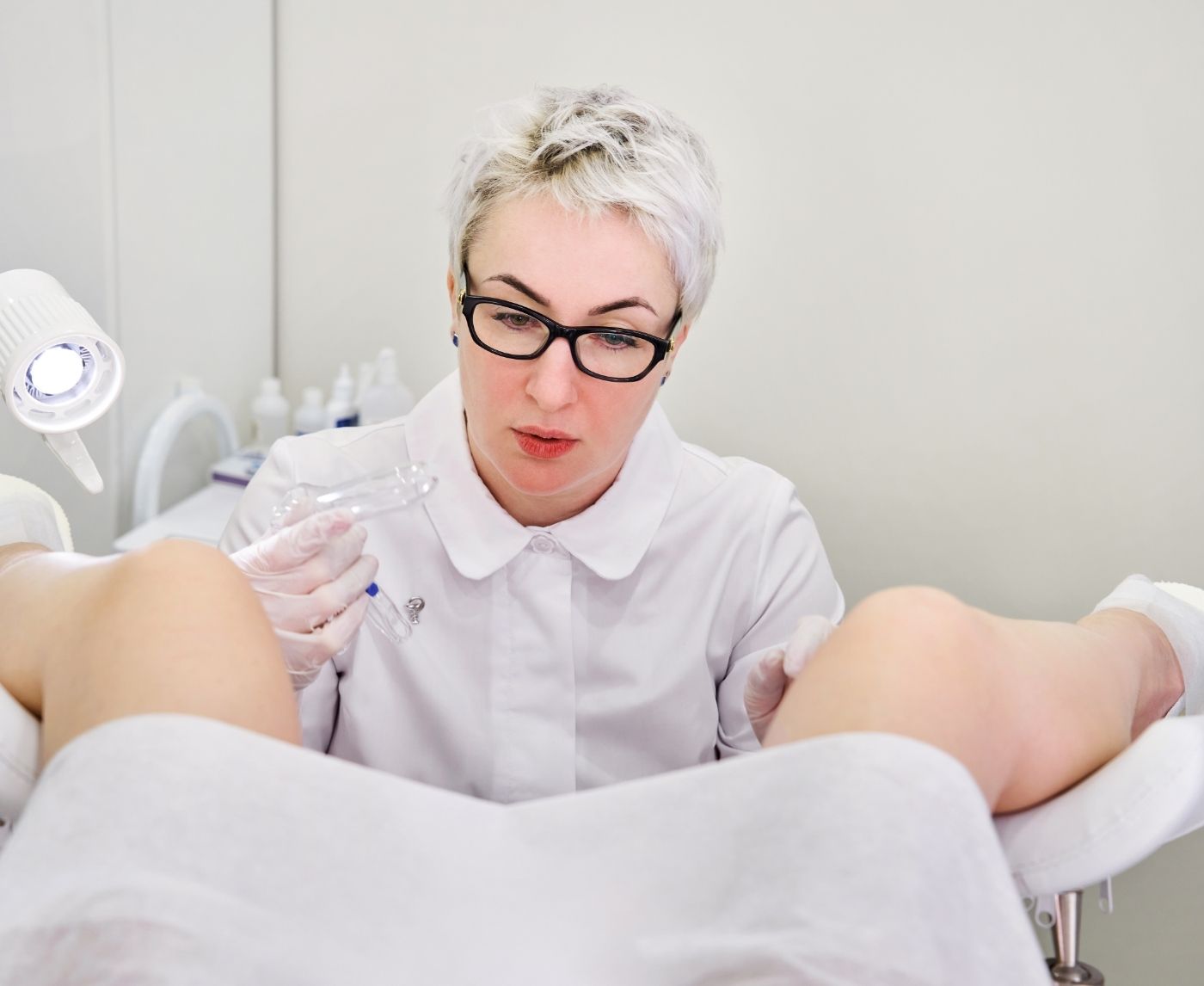STD or Something Else? How to Tell If Your Symptoms Are a Warning Sign
BV͏͏ is͏͏ one͏͏ of͏͏ the͏͏ most͏͏ common͏͏ vaginal͏͏ conditions,͏͏ affecting͏͏ an͏͏ estimated͏͏ 21͏͏ million͏͏ women͏͏ in͏͏ the͏͏ U.S.͏͏ annually,͏͏ yet͏͏ many͏͏ remain͏͏ unaware͏͏ of͏͏ its͏͏ risks͏͏ and͏͏ implications͏͏ for͏͏ sexual͏͏ health.͏͏ Because͏͏ BV͏͏ results͏͏ from͏͏ an͏͏ imbalance͏͏ in͏͏ vaginal͏͏ bacteria͏͏ rather͏͏ than͏͏ a͏͏ single͏͏ infectious͏͏ agent,͏͏ its͏͏ relationship͏͏ with͏͏ STIs͏͏ raises͏͏ many͏͏ questions:͏͏ Can͏͏ BV͏͏ be͏͏ transmitted͏͏ through͏͏ sex?͏͏ Does͏͏ it͏͏ make͏͏ you͏͏ more͏͏ vulnerable͏͏ to͏͏ STIs?͏͏ Can͏͏ treating͏͏ BV͏͏ lower͏͏ your͏͏ STI͏͏ risk?
Myth͏͏ #1:͏͏ Bacterial͏͏ Vaginosis͏͏ is͏͏ a͏͏ Sexually͏͏ Transmitted͏͏ Infection
Fact:͏͏ BV͏͏ is͏͏ NOT͏͏ an͏͏ STI,͏͏ but͏͏ It͏͏ Can͏͏ Be͏͏ Linked͏͏ to͏͏ Sexual͏͏ Activity
One͏͏ of͏͏ the͏͏ most͏͏ common͏͏ misconceptions͏͏ about͏͏ BV͏͏ is͏͏ that͏͏ it͏͏ is͏͏ a͏͏ sexually͏͏ transmitted͏͏ disease.͏͏ Unlike͏͏ chlamydia͏͏ or͏͏ gonorrhea,͏͏ BV͏͏ is͏͏ not͏͏ caused͏͏ by͏͏ a͏͏ specific͏͏ pathogen.͏͏ Instead,͏͏ it͏͏ results͏͏ from͏͏ an͏͏ overgrowth͏͏ of͏͏ harmful͏͏ bacteria͏͏ that͏͏ disrupts͏͏ the͏͏ natural͏͏ balance͏͏ of͏͏ the͏͏ vaginal͏͏ microbiome.
However,͏͏ research͏͏ shows͏͏ that͏͏ BV͏͏ is͏͏ more͏͏ common͏͏ in͏͏ sexually͏͏ active͏͏ individuals.͏͏ A͏͏ study͏͏ published͏͏ in͏͏ the͏͏ Journal͏͏ of͏͏ Clinical͏͏ Microbiology͏͏ found͏͏ that͏͏ women͏͏ who͏͏ have͏͏ multiple͏͏ sexual͏͏ partners͏͏ are͏͏ twice͏͏ as͏͏ likely͏͏ to͏͏ develop͏͏ BV.͏͏ Similarly,͏͏ a͏͏ BMC͏͏ Medicine͏͏ review͏͏ highlighted͏͏ that͏͏ BV͏͏ is͏͏ more͏͏ prevalent͏͏ among͏͏ women͏͏ who͏͏ engage͏͏ in͏͏ unprotected͏͏ sex͏͏ or͏͏ same-sex͏͏ relationships.
While͏͏ BV͏͏ is͏͏ not͏͏ classified͏͏ as͏͏ an͏͏ STI,͏͏ certain͏͏ sexual͏͏ behaviors͏͏ can͏͏ increase͏͏ the͏͏ risk͏͏ of͏͏ developing͏͏ it:
- Unprotected͏͏ sex͏͏ can͏͏ introduce͏͏ new͏͏ bacteria͏͏ into͏͏ the͏͏ vaginal͏͏ environment,͏͏ disrupting͏͏ its͏͏ balance.
- Douching͏͏ alters͏͏ the͏͏ natural͏͏ pH,͏͏ making͏͏ the͏͏ vagina͏͏ more͏͏ susceptible͏͏ to͏͏ harmful͏͏ bacterial͏͏ overgrowth.
- Multiple͏͏ sexual͏͏ partners͏͏ increase͏͏ exposure͏͏ to͏͏ different͏͏ bacterial͏͏ strains,͏͏ raising͏͏ the͏͏ likelihood͏͏ of͏͏ developing͏͏ BV.
Key͏͏ Takeaway:͏͏ BV͏͏ is͏͏ not͏͏ an͏͏ STI,͏͏ but͏͏ sexual͏͏ activity͏͏ can͏͏ influence͏͏ its͏͏ occurrence͏͏ and͏͏ recurrence.
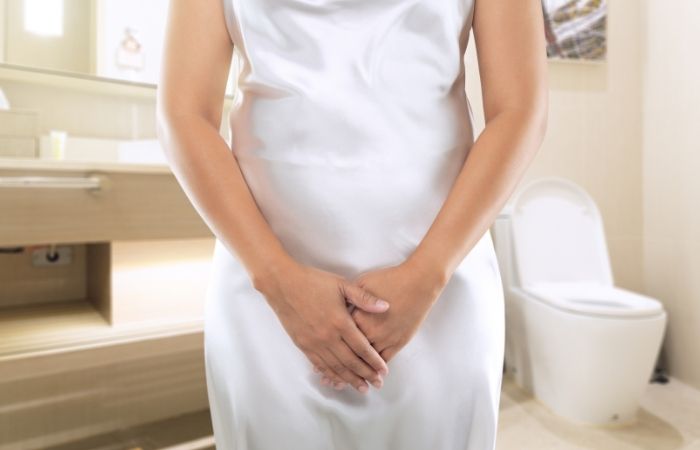
Myth͏͏ #2:͏͏ Bacterial͏͏ Vaginosis͏͏ Does͏͏ Not͏͏ Increase͏͏ the͏͏ Risk͏͏ of͏͏ STIs
Fact:͏͏ BV͏͏ Makes͏͏ You͏͏ More͏͏ Vulnerable͏͏ to͏͏ STIs
While͏͏ BV͏͏ is͏͏ not͏͏ an͏͏ STI,͏͏ it͏͏ significantly͏͏ raises͏͏ the͏͏ risk͏͏ of͏͏ acquiring͏͏ one.͏͏ The͏͏ reason?͏͏ BV͏͏ weakens͏͏ the͏͏ vaginal͏͏ defense͏͏ system.
Scientific͏͏ Evidence
A͏͏ Harvard͏͏ University͏͏ study͏͏ found͏͏ that͏͏ women͏͏ with͏͏ BV͏͏ are͏͏ 60%͏͏ more͏͏ likely͏͏ to͏͏ contract͏͏ chlamydia͏͏ or͏͏ gonorrhea͏͏ than͏͏ those͏͏ with͏͏ a͏͏ balanced͏͏ vaginal͏͏ microbiome.
A͏͏ CDC͏͏ report͏͏ highlighted͏͏ that͏͏ women͏͏ with͏͏ BV͏͏ are͏͏ twice͏͏ as͏͏ likely͏͏ to͏͏ acquire͏͏ HIV͏͏ compared͏͏ to͏͏ those͏͏ without͏͏ it.
Research͏͏ published͏͏ in͏͏ BMC͏͏ Women’s͏͏ Health͏͏ suggests͏͏ that͏͏ BV͏͏ alters͏͏ vaginal͏͏ immunity,͏͏ making͏͏ it͏͏ easier͏͏ for͏͏ harmful͏͏ bacteria͏͏ and͏͏ viruses͏͏ to͏͏ infect͏͏ vaginal͏͏ tissues.
Why͏͏ Does͏͏ BV͏͏ Increase͏͏ STI͏͏ Risk?
- Loss͏͏ of͏͏ Protective͏͏ Lactobacilli͏͏ –͏͏ The͏͏ vagina͏͏ naturally͏͏ contains͏͏ good͏͏ bacteria͏͏ called͏͏ lactobacilli,͏͏ which͏͏ help͏͏ maintain͏͏ an͏͏ acidic͏͏ environment͏͏ that͏͏ prevents͏͏ infections.͏͏ BV͏͏ reduces͏͏ these͏͏ bacteria,͏͏ making͏͏ the͏͏ vagina͏͏ more͏͏ susceptible͏͏ to͏͏ STIs.
- Inflammation͏͏ and͏͏ Microtears͏͏ –͏͏ BV͏͏ can͏͏ cause͏͏ vaginal͏͏ irritation͏͏ and͏͏ inflammation,͏͏ leading͏͏ to͏͏ tiny͏͏ microtears͏͏ in͏͏ the͏͏ vaginal͏͏ lining,͏͏ making͏͏ it͏͏ easier͏͏ for͏͏ STIs͏͏ to͏͏ enter͏͏ the͏͏ bloodstream.
- Changes͏͏ in͏͏ Vaginal͏͏ pH͏͏ –͏͏ A͏͏ healthy͏͏ vaginal͏͏ pH͏͏ is͏͏ around͏͏ 3.8–4.5.͏͏ With͏͏ BV,͏͏ it͏͏ can͏͏ rise͏͏ to͏͏ 5.0͏͏ or͏͏ higher,͏͏ creating͏͏ an͏͏ environment͏͏ where͏͏ STIs͏͏ thrive.
Key͏͏ Takeaway:͏͏ BV͏͏ makes͏͏ it͏͏ easier͏͏ for͏͏ STIs͏͏ to͏͏ take͏͏ hold͏͏ by͏͏ weakening͏͏ the͏͏ vagina’s͏͏ natural͏͏ defenses.
Check Your STD Status in Minutes
Test at Home with RemediumTrichomoniasis Test Kit
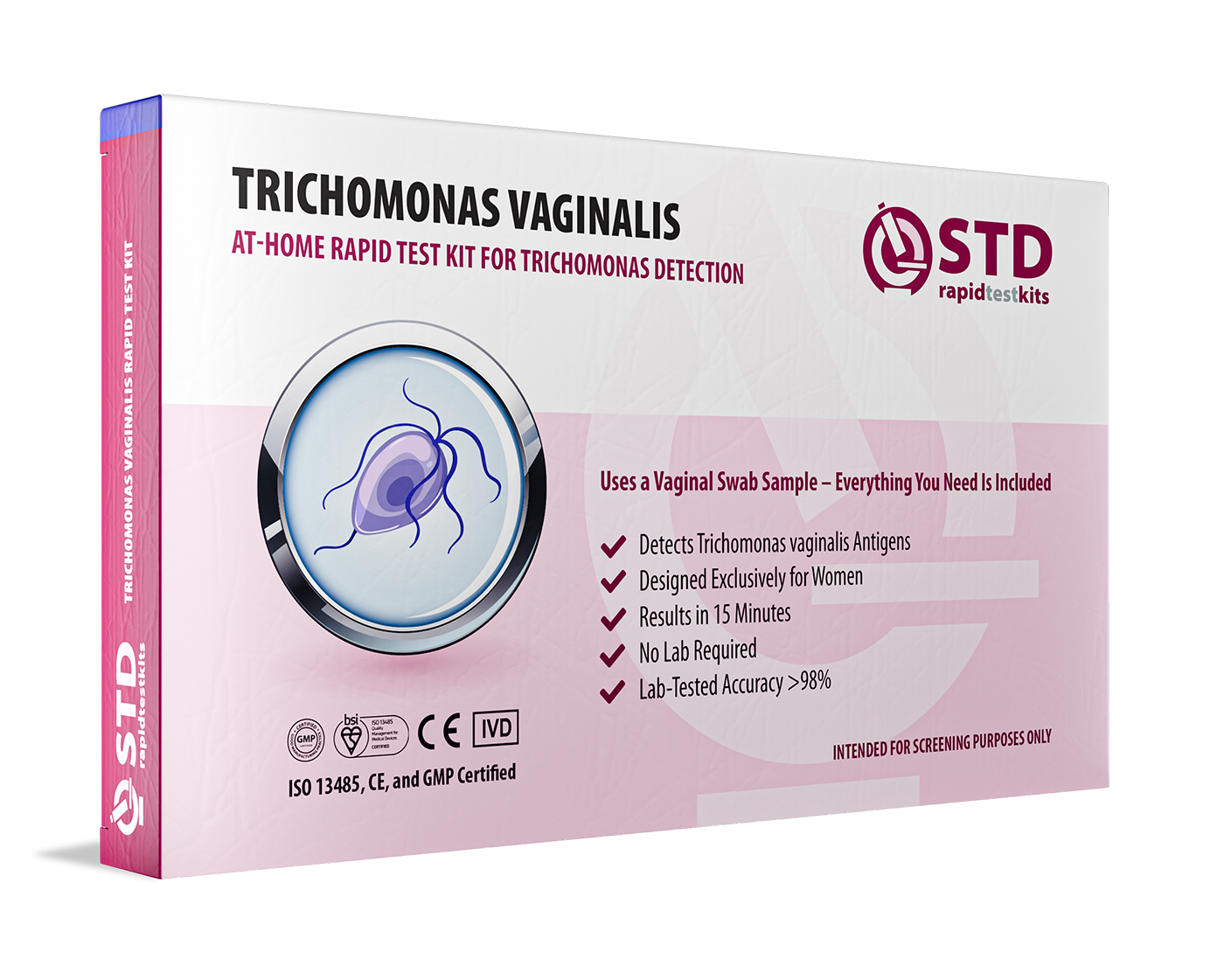
 For Women
For Women Results in Minutes
Results in Minutes No Lab Needed
No Lab Needed Private & Discreet
Private & DiscreetOrder Now $33.99 $49.00
Myth͏͏ #3:͏͏ BV͏͏ Only͏͏ Affects͏͏ Women͏͏ Who͏͏ Are͏͏ Sexually͏͏ Active
Fact:͏͏ BV͏͏ Can͏͏ Affect͏͏ Anyone,͏͏ Even͏͏ Those͏͏ Who͏͏ Have͏͏ Never͏͏ Had͏͏ Sex
BV͏͏ is͏͏ more͏͏ common͏͏ in͏͏ sexually͏͏ active͏͏ individuals,͏͏ but͏͏ it͏͏ can͏͏ also͏͏ occur͏͏ in͏͏ people͏͏ who͏͏ have͏͏ never͏͏ had͏͏ sex.͏͏ Several͏͏ non-sexual͏͏ factors͏͏ can͏͏ trigger͏͏ BV,͏͏ including:
- Hormonal͏͏ fluctuations͏͏ (pregnancy,͏͏ menopause,͏͏ birth͏͏ control͏͏ use)
- Antibiotic͏͏ use,͏͏ which͏͏ disrupts͏͏ the͏͏ vaginal͏͏ microbiome
- Poor͏͏ hygiene͏͏ practices,͏͏ such͏͏ as͏͏ using͏͏ scented͏͏ soaps͏͏ or͏͏ vaginal͏͏ sprays
- Wearing͏͏ tight,͏͏ non-breathable͏͏ underwear͏͏ that͏͏ traps͏͏ moisture͏͏ and͏͏ bacteria
A͏͏ study͏͏ in͏͏ PLOS͏͏ ONE͏͏ found͏͏ that͏͏ about͏͏ 10%͏͏ of͏͏ women͏͏ who͏͏ have͏͏ never͏͏ engaged͏͏ in͏͏ sexual͏͏ activity͏͏ have͏͏ experienced͏͏ BV.͏͏ This͏͏ underscores͏͏ that͏͏ while͏͏ sex͏͏ can͏͏ influence͏͏ BV͏͏ risk,͏͏ it͏͏ is͏͏ not͏͏ the͏͏ sole͏͏ cause.
Key͏͏ Takeaway:͏͏ Sexual͏͏ activity͏͏ can͏͏ increase͏͏ the͏͏ risk͏͏ of͏͏ BV,͏͏ but͏͏ it͏͏ is͏͏ not͏͏ the͏͏ only͏͏ factor͏͏ contributing͏͏ to͏͏ its͏͏ development.

Myth͏͏ #4:͏͏ BV͏͏ Always͏͏ Causes͏͏ Symptoms
Fact:͏͏ BV͏͏ Can͏͏ Be͏͏ Asymptomatic,͏͏ Making͏͏ It͏͏ Hard͏͏ to͏͏ Detect
Many͏͏ people͏͏ assume͏͏ that͏͏ BV͏͏ always͏͏ comes͏͏ with͏͏ noticeable͏͏ symptoms͏͏ like͏͏ unusual͏͏ discharge,͏͏ fishy͏͏ odor,͏͏ or͏͏ itching.͏͏ However,͏͏ the͏͏ reality͏͏ is͏͏ that͏͏ more͏͏ than͏͏ 50%͏͏ of͏͏ BV͏͏ cases͏͏ are͏͏ asymptomatic.
This͏͏ means͏͏ many͏͏ individuals͏͏ may͏͏ have͏͏ BV͏͏ without͏͏ realizing͏͏ it,͏͏ increasing͏͏ their͏͏ risk͏͏ of͏͏ unknowingly͏͏ transmitting͏͏ harmful͏͏ bacteria͏͏ to͏͏ partners͏͏ or͏͏ becoming͏͏ more͏͏ vulnerable͏͏ to͏͏ STIs.
Common͏͏ Symptoms͏͏ of͏͏ BV͏͏ (When͏͏ Present)
- Thin,͏͏ watery,͏͏ gray͏͏ or͏͏ white͏͏ discharge
- Strong͏͏ fishy͏͏ odor,͏͏ especially͏͏ after͏͏ sex
- Vaginal͏͏ itching͏͏ or͏͏ irritation
- Burning͏͏ sensation͏͏ during͏͏ urination
If͏͏ you͏͏ suspect͏͏ you͏͏ might͏͏ have͏͏ BV,͏͏ getting͏͏ tested͏͏ is͏͏ crucial, especially͏͏ if͏͏ you͏͏ are͏͏ also͏͏ at͏͏ risk͏͏ for͏͏ STIs.
Key͏͏ Takeaway:͏͏ You͏͏ can͏͏ have͏͏ BV͏͏ without͏͏ symptoms,͏͏ making͏͏ regular͏͏ testing͏͏ essential͏͏ for͏͏ sexual͏͏ health.
Check Your STD Status in Minutes
Test at Home with RemediumPapillomavirus (HPV) Test
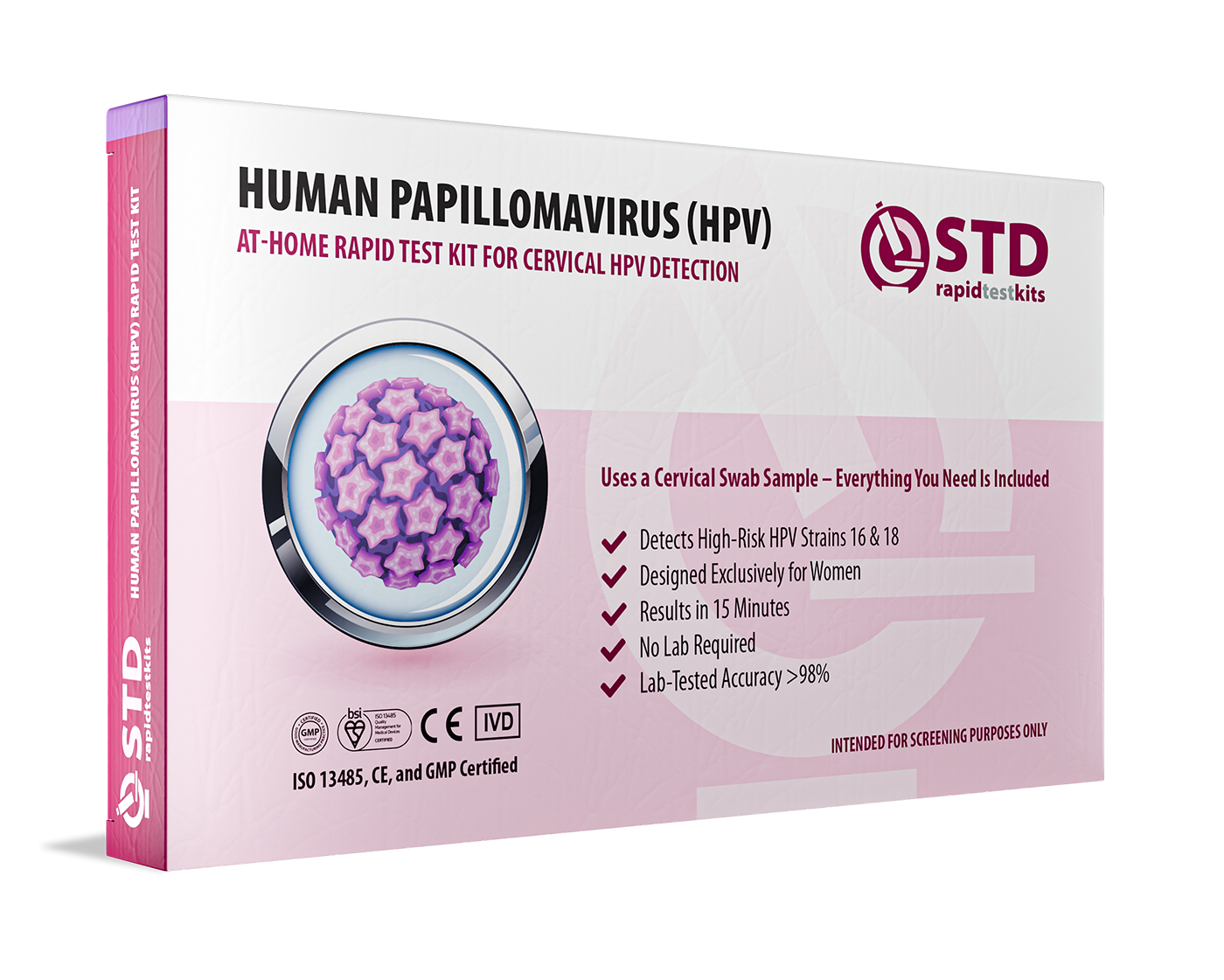
 For Women
For Women Results in Minutes
Results in Minutes No Lab Needed
No Lab Needed Private & Discreet
Private & DiscreetOrder Now $33.99 $49.00
Myth͏͏ #5:͏͏ BV͏͏ and͏͏ STIs͏͏ Always͏͏ Require͏͏ Antibiotics
Fact:͏͏ Some͏͏ Cases͏͏ Resolve͏͏ Naturally,͏͏ But͏͏ Treatment͏͏ Is͏͏ Often͏͏ Necessary
Mild͏͏ cases͏͏ of͏͏ BV͏͏ may͏͏ resolve͏͏ on͏͏ their͏͏ own,͏͏ particularly͏͏ if͏͏ the͏͏ vaginal͏͏ microbiome͏͏ naturally͏͏ restores͏͏ itself.͏͏ However,͏͏ many͏͏ cases͏͏ require͏͏ antibiotics͏͏ like͏͏ metronidazole͏͏ or͏͏ clindamycin͏͏ to͏͏ clear͏͏ the͏͏ infection.
For͏͏ those͏͏ prone͏͏ to͏͏ recurring͏͏ BV,͏͏ some͏͏ experts͏͏ recommend:
- Probiotic͏͏ supplements͏͏ to͏͏ restore͏͏ good͏͏ bacteria
- Avoiding͏͏ douching͏͏ and͏͏ harsh͏͏ soaps
- Using͏͏ condoms͏͏ to͏͏ reduce͏͏ exposure͏͏ to͏͏ disruptive͏͏ bacteria
- Regular͏͏ testing͏͏ to͏͏ monitor͏͏ changes͏͏ in͏͏ vaginal͏͏ health
A͏͏ BMC͏͏ Medicine͏͏ study͏͏ found͏͏ that͏͏ women͏͏ who͏͏ take͏͏ probiotics͏͏ have͏͏ a͏͏ 40%͏͏ lower͏͏ chance͏͏ of͏͏ BV͏͏ recurrence.
Key͏͏ Takeaway:͏͏ Antibiotics͏͏ are͏͏ often͏͏ needed,͏͏ but͏͏ probiotics͏͏ and͏͏ lifestyle͏͏ changes͏͏ can͏͏ help͏͏ prevent͏͏ recurrence.
Prevention͏͏ Strategies:͏͏ How͏͏ to͏͏ Lower͏͏ Your͏͏ Risk͏͏ of͏͏ BV͏͏ and͏͏ STIs
Since͏͏ BV͏͏ increases͏͏ susceptibility͏͏ to͏͏ sexually͏͏ transmitted͏͏ infections,͏͏ preventing͏͏ BV͏͏ can͏͏ also͏͏ help͏͏ reduce͏͏ STI͏͏ risk.͏͏ While͏͏ there’s͏͏ no͏͏ foolproof͏͏ way͏͏ to͏͏ eliminate͏͏ BV͏͏ entirely,͏͏ adopting͏͏ healthy͏͏ vaginal͏͏ care͏͏ habits͏͏ can͏͏ significantly͏͏ lower͏͏ the͏͏ chances͏͏ of͏͏ developing͏͏ it.
Maintain͏͏ a͏͏ Healthy͏͏ Vaginal͏͏ pH
- Avoid͏͏ douching,͏͏ which͏͏ disrupts͏͏ the͏͏ natural͏͏ bacterial͏͏ balance.
- Use͏͏ pH-balanced͏͏ feminine͏͏ hygiene͏͏ products, avoid͏͏ scented͏͏ soaps͏͏ or͏͏ vaginal͏͏ sprays.
- Wear͏͏ breathable͏͏ cotton͏͏ underwear͏͏ to͏͏ keep͏͏ the͏͏ vaginal͏͏ area͏͏ dry͏͏ and͏͏ prevent͏͏ bacterial͏͏ overgrowth.
Practice͏͏ Safe͏͏ Sex
- Use͏͏ condoms͏͏ to͏͏ reduce͏͏ exposure͏͏ to͏͏ bacteria͏͏ that͏͏ can͏͏ trigger͏͏ BV.
- Avoid͏͏ multiple͏͏ sexual͏͏ partners͏͏ to͏͏ minimize͏͏ the͏͏ introduction͏͏ of͏͏ new͏͏ bacteria.
- Wash͏͏ hands͏͏ and͏͏ intimate͏͏ areas͏͏ before͏͏ and͏͏ after͏͏ sex͏͏ to͏͏ maintain͏͏ hygiene.

Incorporate͏͏ Probiotics͏͏ into͏͏ Your͏͏ Routine
- Take͏͏ oral͏͏ probiotics͏͏ containing͏͏ Lactobacillus͏͏ species͏͏ to͏͏ support͏͏ a͏͏ healthy͏͏ vaginal͏͏ microbiome.
- Eat͏͏ probiotic-rich͏͏ foods͏͏ like͏͏ yogurt,͏͏ kimchi,͏͏ and͏͏ sauerkraut͏͏ to͏͏ boost͏͏ good͏͏ bacteria.
Seek͏͏ Early͏͏ Treatment͏͏ for͏͏ Recurring͏͏ BV
If͏͏ you͏͏ experience͏͏ frequent͏͏ BV͏͏ infections,͏͏ consult͏͏ a͏͏ healthcare͏͏ provider͏͏ about͏͏ long-term͏͏ treatment͏͏ options.
- Regular͏͏ STI͏͏ testing͏͏ is͏͏ essential, many͏͏ STIs͏͏ have͏͏ overlapping͏͏ symptoms͏͏ with͏͏ BV.
- If͏͏ your͏͏ BV͏͏ recurs͏͏ after͏͏ antibiotic͏͏ treatment,͏͏ discuss͏͏ alternative͏͏ therapies͏͏ like͏͏ boric͏͏ acid͏͏ suppositories͏͏ with͏͏ your͏͏ doctor.
Key͏͏ Takeaway:͏͏ By͏͏ adopting͏͏ simple͏͏ lifestyle͏͏ changes,͏͏ you͏͏ can͏͏ lower͏͏ your͏͏ risk͏͏ of͏͏ BV͏͏ and,͏͏ in͏͏ turn,͏͏ protect͏͏ yourself͏͏ from͏͏ sexually͏͏ transmitted͏͏ infections.
Expert͏͏ Opinions:͏͏ What͏͏ Do͏͏ Doctors͏͏ Say͏͏ About͏͏ BV͏͏ and͏͏ STIs?
To͏͏ understand͏͏ the͏͏ medical͏͏ community’s͏͏ stance͏͏ on͏͏ the͏͏ BV-STI͏͏ connection,͏͏ let’s͏͏ look͏͏ at͏͏ insights͏͏ from͏͏ gynecologists,͏͏ infectious͏͏ disease͏͏ specialists,͏͏ and͏͏ microbiome͏͏ researchers.
Dr.͏͏ Jennifer͏͏ Conti,͏͏ MD,͏͏ Stanford͏͏ University
"BV͏͏ is͏͏ not͏͏ classified͏͏ as͏͏ a͏͏ sexually͏͏ transmitted͏͏ infection,͏͏ but͏͏ we͏͏ know͏͏ that͏͏ changes͏͏ in͏͏ sexual͏͏ behavior, like͏͏ having͏͏ a͏͏ new͏͏ partner, can͏͏ make͏͏ BV͏͏ more͏͏ likely.͏͏ The͏͏ biggest͏͏ concern͏͏ is͏͏ that͏͏ BV͏͏ makes͏͏ the͏͏ vaginal͏͏ lining͏͏ more͏͏ vulnerable͏͏ to͏͏ infections͏͏ like͏͏ chlamydia͏͏ and͏͏ HIV."
Dr.͏͏ Jeanne͏͏ Marrazzo,͏͏ MD,͏͏ Director͏͏ of͏͏ NIAID
"Studies͏͏ consistently͏͏ show͏͏ that͏͏ women͏͏ with͏͏ BV͏͏ have͏͏ a͏͏ higher͏͏ prevalence͏͏ of͏͏ STIs,͏͏ including͏͏ herpes͏͏ and͏͏ gonorrhea.͏͏ The͏͏ disruption͏͏ of͏͏ good͏͏ bacteria͏͏ creates͏͏ an͏͏ entryway͏͏ for͏͏ harmful͏͏ pathogens."
Dr.͏͏ Lisa͏͏ Sterman,͏͏ OB-GYN,͏͏ UCSF
"We͏͏ used͏͏ to͏͏ think͏͏ BV͏͏ was͏͏ just͏͏ a͏͏ minor͏͏ inconvenience,͏͏ but͏͏ now͏͏ we͏͏ know͏͏ it͏͏ can͏͏ have͏͏ serious͏͏ reproductive͏͏ health͏͏ consequences,͏͏ including͏͏ increasing͏͏ the͏͏ risk͏͏ of͏͏ pelvic͏͏ inflammatory͏͏ disease͏͏ (PID)͏͏ and͏͏ preterm͏͏ birth."
Key͏͏ Takeaway:͏͏ BV͏͏ is͏͏ more͏͏ than͏͏ just͏͏ an͏͏ imbalance, it͏͏ has͏͏ serious͏͏ implications͏͏ for͏͏ STI͏͏ risk͏͏ and͏͏ overall͏͏ vaginal͏͏ health.
Check Your STD Status in Minutes
Test at Home with Remedium10-in-1 STD Test Kit
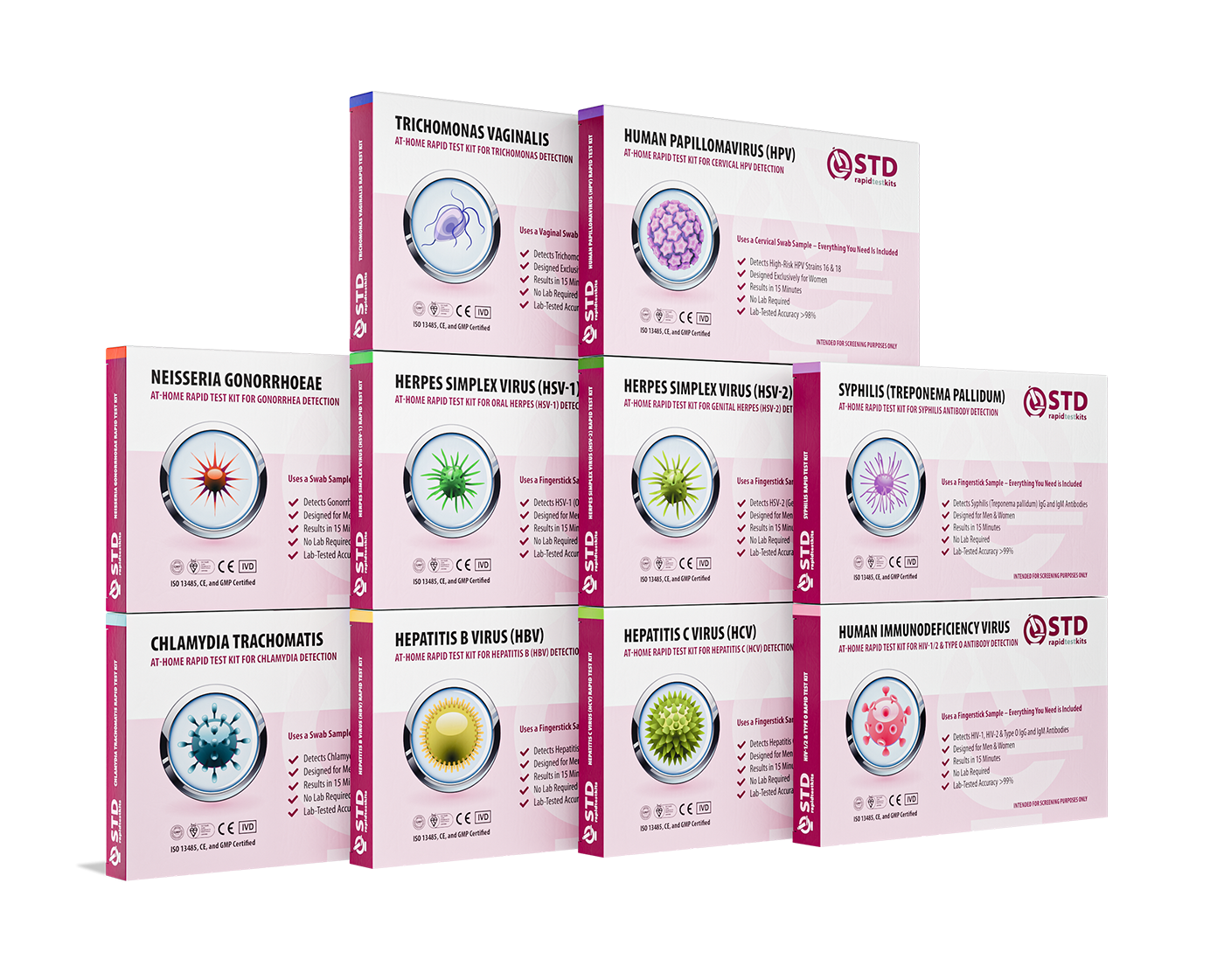
 For Women
For Women Results in Minutes
Results in Minutes No Lab Needed
No Lab Needed Private & Discreet
Private & DiscreetOrder Now $189.00 $490.00
For all 10 tests
Common͏͏ Misconceptions͏͏ About͏͏ BV͏͏ and͏͏ STIs
Many͏͏ myths͏͏ about͏͏ BV͏͏ continue͏͏ to͏͏ circulate,͏͏ causing͏͏ confusion͏͏ and͏͏ stigma.͏͏ Let’s͏͏ clear͏͏ up͏͏ some͏͏ of͏͏ the͏͏ biggest͏͏ misconceptions.
Myth:͏͏ Only͏͏ women͏͏ can͏͏ get͏͏ BV.
Fact:͏͏ While͏͏ BV͏͏ primarily͏͏ affects͏͏ people͏͏ with͏͏ vaginas,͏͏ bacterial͏͏ imbalances͏͏ can͏͏ affect͏͏ all͏͏ genitals.͏͏ Studies͏͏ suggest͏͏ that͏͏ men͏͏ who͏͏ have͏͏ female͏͏ partners͏͏ with͏͏ BV͏͏ may͏͏ carry͏͏ the͏͏ same͏͏ bacterial͏͏ strains,͏͏ potentially͏͏ contributing͏͏ to͏͏ recurrence.
Myth:͏͏ BV͏͏ will͏͏ go͏͏ away͏͏ on͏͏ its͏͏ own.
Fact:͏͏ While͏͏ some͏͏ cases͏͏ clear͏͏ without͏͏ treatment,͏͏ most͏͏ require͏͏ antibiotics.͏͏ Recurring͏͏ BV͏͏ should͏͏ never͏͏ be͏͏ ignored,͏͏ as͏͏ it͏͏ can͏͏ increase͏͏ the͏͏ risk͏͏ of͏͏ STIs͏͏ and͏͏ reproductive͏͏ health͏͏ issues.
Myth:͏͏ BV͏͏ only͏͏ affects͏͏ people͏͏ with͏͏ poor͏͏ hygiene.
Fact:͏͏ BV͏͏ has͏͏ nothing͏͏ to͏͏ do͏͏ with͏͏ cleanliness, in͏͏ fact,͏͏ over-washing͏͏ or͏͏ using͏͏ harsh͏͏ soaps͏͏ can͏͏ disrupt͏͏ the͏͏ vaginal͏͏ microbiome͏͏ and͏͏ make͏͏ BV͏͏ worse.
Myth:͏͏ You͏͏ can͏͏ catch͏͏ BV͏͏ from͏͏ toilet͏͏ seats͏͏ or͏͏ pools.
Fact:͏͏ BV͏͏ is͏͏ not͏͏ spread͏͏ through͏͏ surfaces, it͏͏ is͏͏ an͏͏ internal͏͏ bacterial͏͏ imbalance͏͏ influenced͏͏ by͏͏ sex,͏͏ hygiene,͏͏ and͏͏ hormonal͏͏ changes.
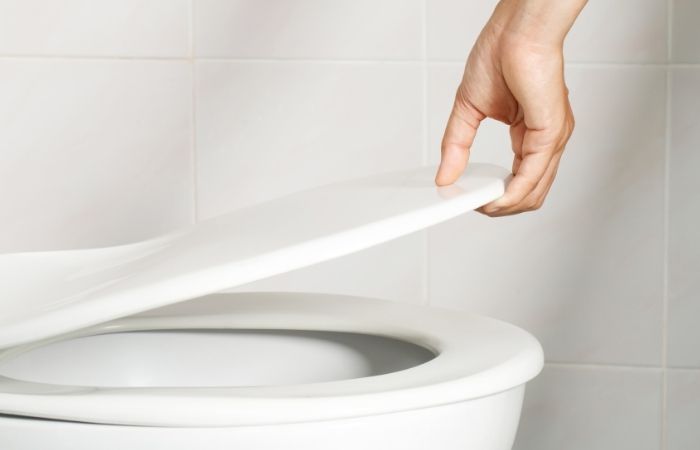
FAQs
1.͏͏ Can͏͏ BV͏͏ turn͏͏ into͏͏ an͏͏ STI͏͏ if͏͏ left͏͏ untreated?
No,͏͏ BV͏͏ itself͏͏ is͏͏ not͏͏ an͏͏ STI,͏͏ but͏͏ it͏͏ increases͏͏ your͏͏ risk͏͏ of͏͏ getting͏͏ one͏͏ by͏͏ weakening͏͏ vaginal͏͏ defenses.
2.͏͏ If͏͏ I͏͏ have͏͏ BV,͏͏ should͏͏ my͏͏ partner͏͏ get͏͏ tested?
BV͏͏ is͏͏ not͏͏ routinely͏͏ tested͏͏ in͏͏ male͏͏ partners,͏͏ but͏͏ if͏͏ you͏͏ have͏͏ recurring͏͏ BV,͏͏ your͏͏ partner͏͏ may͏͏ be͏͏ carrying͏͏ disruptive͏͏ bacteria.͏͏ Discuss͏͏ testing͏͏ options͏͏ with͏͏ your͏͏ doctor.
3.͏͏ How͏͏ can͏͏ I͏͏ tell͏͏ the͏͏ difference͏͏ between͏͏ BV͏͏ and͏͏ an͏͏ STD?
BV͏͏ symptoms͏͏ often͏͏ include͏͏ a͏͏ fishy͏͏ odor͏͏ and͏͏ thin͏͏ discharge,͏͏ while͏͏ STIs͏͏ may͏͏ cause͏͏ pain,͏͏ burning,͏͏ sores,͏͏ or͏͏ thick͏͏ discharge.͏͏ The͏͏ only͏͏ way͏͏ to͏͏ be͏͏ sure͏͏ is͏͏ to͏͏ get͏͏ tested.
4.͏͏ Can͏͏ oral͏͏ sex͏͏ cause͏͏ BV?
Yes.͏͏ Oral͏͏ bacteria͏͏ can͏͏ disrupt͏͏ vaginal͏͏ pH,͏͏ increasing͏͏ the͏͏ likelihood͏͏ of͏͏ BV.͏͏ If͏͏ you’re͏͏ prone͏͏ to͏͏ BV,͏͏ using͏͏ dental͏͏ dams͏͏ or͏͏ rinsing͏͏ with͏͏ water͏͏ before͏͏ oral͏͏ sex͏͏ may͏͏ help.
5.͏͏ How͏͏ long͏͏ does͏͏ BV͏͏ last͏͏ without͏͏ treatment?
Some͏͏ cases͏͏ clear͏͏ within͏͏ a͏͏ few͏͏ weeks,͏͏ but͏͏ many͏͏ persist͏͏ until͏͏ treated͏͏ with͏͏ antibiotics.͏͏ If͏͏ symptoms͏͏ continue͏͏ for͏͏ more͏͏ than͏͏ two͏͏ weeks,͏͏ see͏͏ a͏͏ doctor.
6.͏͏ Can͏͏ I͏͏ use͏͏ probiotics͏͏ instead͏͏ of͏͏ antibiotics͏͏ for͏͏ BV?
Probiotics͏͏ can͏͏ help͏͏ restore͏͏ good͏͏ bacteria,͏͏ but͏͏ antibiotics͏͏ are͏͏ often͏͏ needed͏͏ to͏͏ fully͏͏ eliminate͏͏ harmful͏͏ bacteria.͏͏ A͏͏ combination͏͏ of͏͏ both͏͏ is͏͏ usually͏͏ the͏͏ best͏͏ approach.
7.͏͏ Does͏͏ BV͏͏ increase͏͏ the͏͏ risk͏͏ of͏͏ HIV?
Yes.͏͏ Studies͏͏ show͏͏ that͏͏ women͏͏ with͏͏ BV͏͏ are͏͏ twice͏͏ as͏͏ likely͏͏ to͏͏ contract͏͏ HIV,͏͏ as͏͏ BV͏͏ weakens͏͏ the͏͏ vaginal͏͏ immune͏͏ barrier.
8.͏͏ What’s͏͏ the͏͏ best͏͏ way͏͏ to͏͏ prevent͏͏ BV͏͏ if͏͏ I͏͏ keep͏͏ getting͏͏ it?
- Avoid͏͏ douching
- Take͏͏ probiotics͏͏ regularly
- Use͏͏ condoms
- Stay͏͏ hydrated
- Reduce͏͏ sugar͏͏ intake͏͏ (BV͏͏ bacteria͏͏ thrive͏͏ on͏͏ sugar!)
9.͏͏ Can͏͏ BV͏͏ be͏͏ cured͏͏ permanently?
BV͏͏ is͏͏ treatable͏͏ but͏͏ prone͏͏ to͏͏ recurrence.͏͏ The͏͏ key͏͏ is͏͏ maintaining͏͏ good͏͏ vaginal͏͏ health͏͏ habits͏͏ to͏͏ keep͏͏ the͏͏ bacteria͏͏ balanced͏͏ long-term.
10.͏͏ Should͏͏ I͏͏ get͏͏ tested͏͏ for͏͏ STIs͏͏ if͏͏ I͏͏ have͏͏ BV?
Absolutely!͏͏ Since͏͏ BV͏͏ increases͏͏ STI͏͏ risk,͏͏ it’s͏͏ smart͏͏ to͏͏ test͏͏ for͏͏ STIs͏͏ if͏͏ you͏͏ have͏͏ BV, especially͏͏ if͏͏ you’ve͏͏ had͏͏ unprotected͏͏ sex.
Check Your STD Status in Minutes
Test at Home with Remedium8-in-1 STD Test Kit
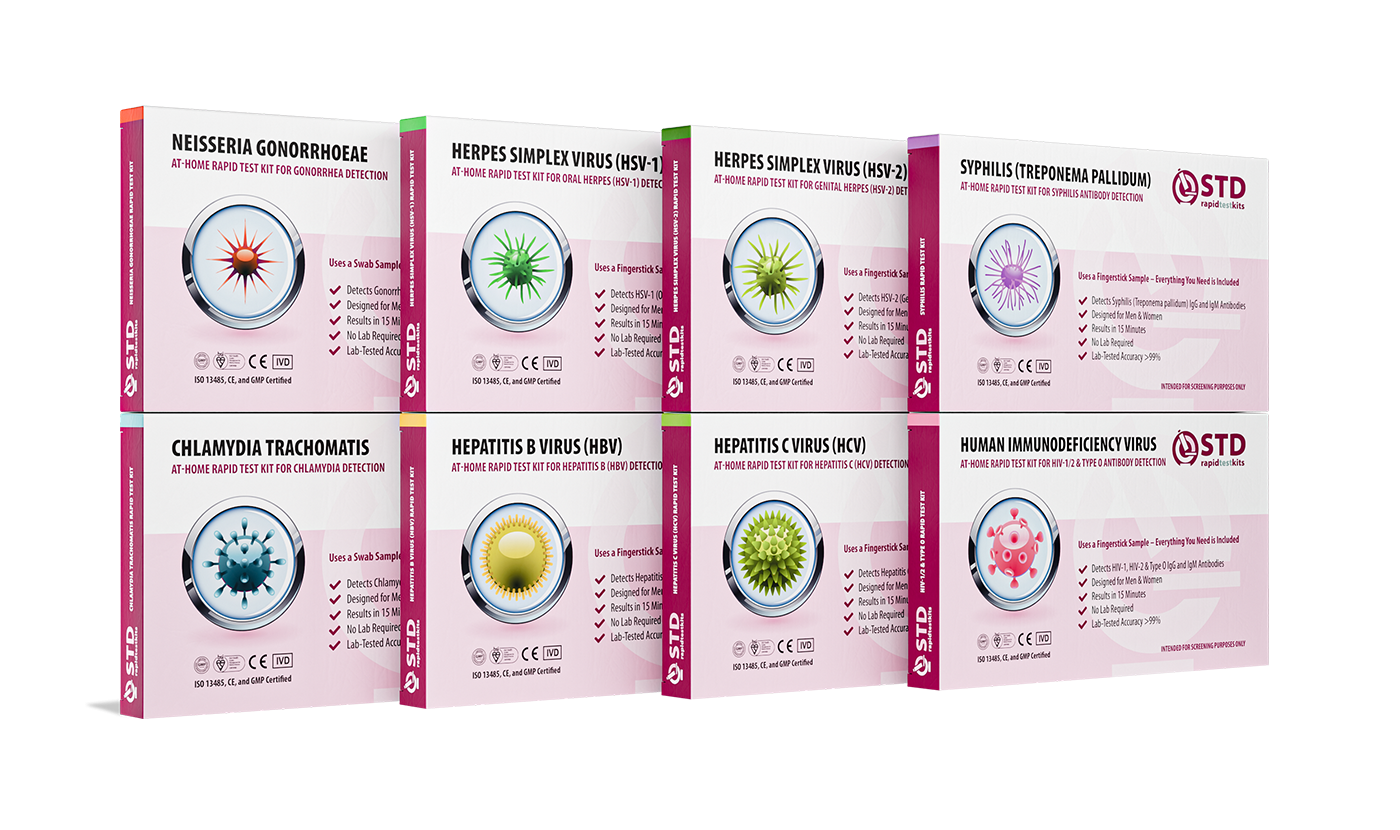
 For Men & Women
For Men & Women Results in Minutes
Results in Minutes No Lab Needed
No Lab Needed Private & Discreet
Private & DiscreetOrder Now $149.00 $392.00
For all 8 tests
Protect͏͏ Your͏͏ Vaginal͏͏ and͏͏ Sexual͏͏ Health
Bacterial͏͏ Vaginosis͏͏ is͏͏ not͏͏ an͏͏ STI,͏͏ but͏͏ it͏͏ plays͏͏ a͏͏ significant͏͏ role͏͏ in͏͏ STI͏͏ risk.͏͏ By͏͏ disrupting͏͏ the͏͏ vaginal͏͏ microbiome,͏͏ BV͏͏ makes͏͏ it͏͏ easier͏͏ for͏͏ infections͏͏ like͏͏ chlamydia,͏͏ gonorrhea,͏͏ herpes,͏͏ and͏͏ HIV͏͏ to͏͏ take͏͏ hold.
The͏͏ best͏͏ way͏͏ to͏͏ protect͏͏ your͏͏ health͏͏ is͏͏ through:
Regular͏͏ STD͏͏ and͏͏ BV͏͏ testing
Safe͏͏ sex͏͏ practices͏͏ (condoms,͏͏ dental͏͏ dams)
Probiotic͏͏ use͏͏ to͏͏ maintain͏͏ vaginal͏͏ balance
Consulting͏͏ a͏͏ doctor͏͏ if͏͏ you͏͏ experience͏͏ persistent͏͏ BV͏͏ or͏͏ STI͏͏ symptoms
If͏͏ you’re͏͏ unsure͏͏ whether͏͏ you͏͏ have͏͏ BV,͏͏ an͏͏ STI,͏͏ or͏͏ both,͏͏ don’t͏͏ wait, get͏͏ tested͏͏ today.͏͏ At-home͏͏ STD͏͏ test͏͏ kits͏͏ provide͏͏ a͏͏ private,͏͏ easy͏͏ solution͏͏ for͏͏ sexual͏͏ health͏͏ screening.͏͏ Take͏͏ control͏͏ of͏͏ your͏͏ health͏͏ by͏͏ getting͏͏ tested͏͏ from͏͏ the͏͏ comfort͏͏ of͏͏ your͏͏
Take the next step: Protect yourself, get tested, and prioritize your sexual health.
Sources
1.- Harvard's Wyss Institute – "A breakthrough in bacterial vaginosis treatment for women's health"
2.- Centers for Disease Control and Prevention (CDC) – "Bacterial Vaginosis – STI Treatment Guidelines"
4.- STD-Related Infertility: Causes and Solutions – Horizon Clinics






